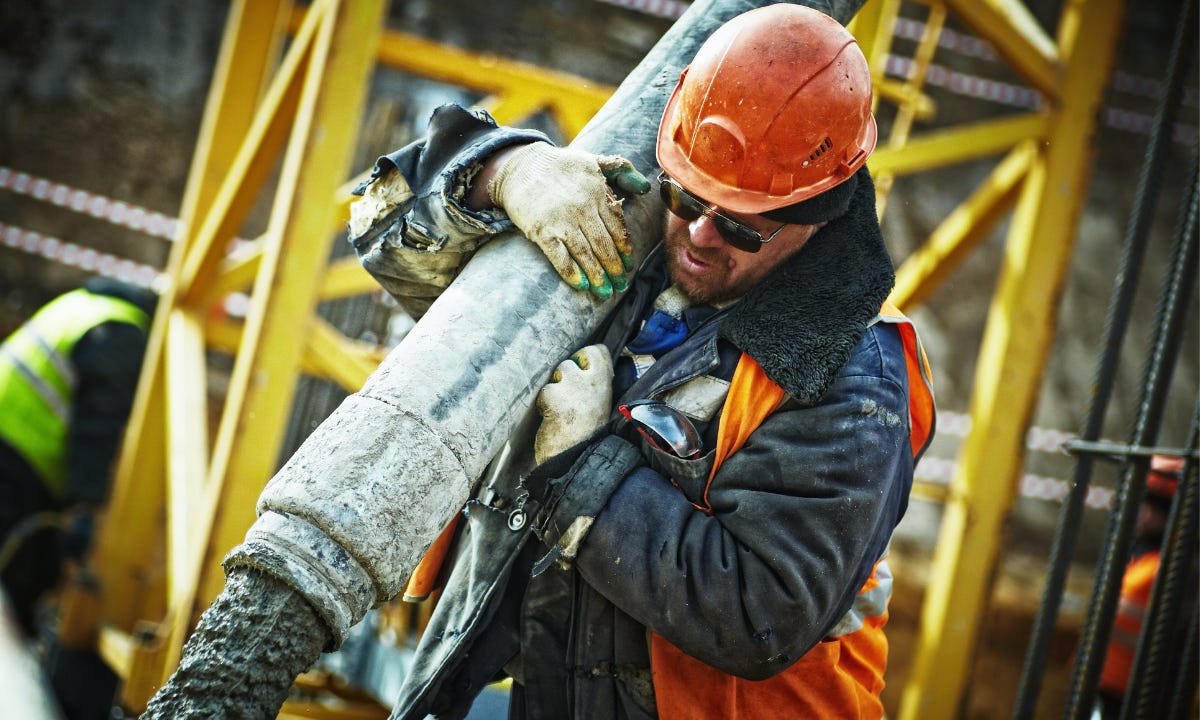The pandemic has shown no worker is expendable. Let's not forget that
Many workers formerly classified as "low-skilled" were deemed "essential" at the beginning of the pandemic. They're slowly getting the old label back, and it's problematic.
During the heat of the pandemic, I grew intrigued by the classification of workers. Suddenly, the country that continues to steepen its expectations of obtaining college degrees was relying on those it considered “low-skilled” -- whether grocery store workers, bus drivers, or care staff. All of a sudden, they were deemed essential to keeping the country from collapsing. Finally, there was a growing appreciation for this often-unnoticed personnel. But things have quickly retracted. Those grocery store workers, those bus drivers, those care staff workers have become expendable once again.
The storyline is a shame, yet unsurprising. It is a reflection of our values as a country, where occupational hierarchy is its own disease. Most of all, it is apparent that some workers are essential until they ask to be paid as such, and they quickly return to being “low-skilled” and therefore unimportant, simply because they lack letters after their name.
I am not saying that each occupation should pay the same, but merely pointing out the double standard we -- the government, the media, and the public -- have created. It's obvious that the country is organized into social classes, beyond the economic ones, and those “essential” workers are often at the bottom. In a way, they are at the base of the pyramid that is the economy. Those at the top -- the rich -- have to step on them to maintain their position, and without them providing a solid base, the economy collapses. Yet they are repeatedly knocked for not having the skillset other workers have. It's frustrating because it's based on the “skills” one possesses, with lower skills being those that “most” people possess.
The calculated strategy is glaring, and it has created a lose-lose situation for essential workers. On the one hand, their labor is needed in times of crisis, like the pandemic, and they have to work not only to feed themselves and their families but to keep the country afloat. On the other hand, the perception is that their skills aren't worth as much as -- or even comparable to -- those who work in offices and continuing to work in these conditions will allow employers to continue to treat them poorly.
But even weighing both sides of this argument, it is apparent both on the individual level and on the societal level that these workers can't quit -- who knows what a mass resignation among, for example, grocery store workers would mean for the country. Imagine if one day, grocery store workers or nursing home employees got together and said, “We're Not going to work today.” What would happen? Chances are they would be replaced. In other words, they have limited power, unlike other sectors. They represent a population in a bind; not showing up to work would punish their neighbors and fellow Americans much more than powerful figures who take advantage of them.
They acquired the “essential” label seemingly overnight without asking for it, and have been tasked with putting themselves in danger during a global pandemic, often without any reward or recognition, other than the occasional “heroes of the pandemic” commercials that seem to be dwindling. But they have a responsibility to support their communities and quitting would fail their neighbors more than their bosses.And the larger problem is that in the midst of being unrecognized and unrewarded, they are seen as replaceable because they lack a specialty in the eyes of many, so they have to cooperate in order to keep their jobs. It creates a situation where the workers rarely considered the backbone of the nation and consistently under-credited for the difference-making work they do become its essential organs and keep it alive in many ways.
But why does there need to be a ranking of skillset? It's apples and oranges -- and bananas and grapes and mangoes. Different jobs require different skills and contribute to the American experiment in different ways, and that's OK, and it doesn't mean one is more important than another. The labeling is no different than other socially constructed hierarchies, like race and disability; it's about prioritizing some workers over others. More importantly, it's about society deciding who is most important and making conscious and collective choices about who to value.
I say this as a recent college graduate and a masters student, but as somebody close to many without four-year degrees, it disappoints me. These are the people who keep the country running, the backbones of our communities, the engine of the train that is the American economy. They didn't just become essential when everyone else needed to go remote; it wasn't magic. They represent a population that is both ultra-visible and invisible -- we each know someone without a college degree, but those people are often ignored in policy and practice. The pandemic has just uncovered their importance, and we cannot cover it up again. Doing so seems impossible, though we may choose to ignore it in hopes of returning to the normalcy that is occupational hierarchy.



